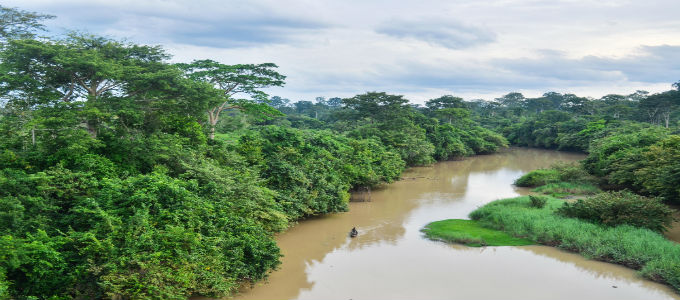Comoé National Park in Côte d’Ivoire on Tuesday, July 4, 2017 came off the List of World Heritage in Danger, as its wildlife recovers from impacts of civil unrest. The decision follows a recommendation from the International Union for Conservation of Nature (IUCN), the official advisory body to UNESCO’s World Heritage Committee, which meets this week in Kraków, Poland.

It is said to be the first World Heritage site to be removed from the “danger list” in West and Central Africa in over 10 years, where half of the region’s 20 natural World Heritage sites are listed as “in danger”.
Species populations in Côte d’Ivoire’s Comoé National Park are on the rise, possibly for the first time in nearly 15 years, thanks to effective management of the park following a stabilisation of the political situation in 2012. An IUCN field mission earlier this year confirmed encouraging numbers of chimpanzees and elephants, which were thought to have disappeared from the park. Côte d’Ivoire has seen a decline of about 90% of its chimpanzee population since the early 1990s. Around 300 chimps and about 120 elephants are believed to live in Comoé National Park today.
“Comoé National Park serves as an inspiration, and shows that the recovery of World Heritage sites impacted by civil unrest is possible,” says Tim Badman, Director of IUCN’s World Heritage Programme. “It proves yet again that conservation action works when it is given a chance. IUCN congratulates the government of Côte d’Ivoire, and the park’s management and rangers, who have made this success possible.”
West and Central Africa boast 20 natural World Heritage sites, which are home to iconic species such as great apes, big cats, elephants and rhinos. However, due the region’s instability, 10 of these sites have been listed as “in danger”, many of them for decades. In the Democratic Republic of the Congo, all five World Heritage sites are in danger, including Africa’s oldest park, Virunga National Park, which has been facing severe threats for over 20 years, including poaching, armed conflict, oil and gas projects. The danger list contains a total of 18 natural World Heritage sites globally.
Comoé National Park, one of the largest protected areas in West Africa, was inscribed on the List of World Heritage in Danger in 2003 due to farming, illegal gold mining and poaching affecting its species populations. These threats were further exacerbated by political instability. Due to insecurity in the region, park staffers were unable to access some areas until civil unrest ended in 2012, allowing the management to regain control of the site and start carrying out conservation work.
The park now benefits from a new management plan, developed in consultation with local communities who take part in wildlife monitoring and other conservation activities. However, threats remain, including farming and artisanal gold mining taking place within the park. Such activities still pose a threat to its species’ key habitats, and continued action is needed to tackle them, according to IUCN.
“The Committee’s decision to take Comoé off the List of World Heritage in Danger serves as a recognition of the efforts carried out by the government and the Ivorian park service,” says Adama Tondossama, Director General of Office Ivoirien des Parcs et Réserves (OIPR) – the authority responsible for parks in Côte d’Ivoire. “It also points to the challenges that the site’s management faces going forward in order to maintain and enhance the achievements of these past years.”
Inscribed as a UNESCO World Heritage site in 1983, Comoé National Park contains a remarkable variety of habitats including savannas, grasslands and forests. It is home to 620 species of plants, 500 species of birds, 135 species of mammals, 35 species of amphibians and 60 species of fish. Many of the animals living in the park are listed as threatened on The IUCN Red List of Threatened Species, including the dwarf crocodile, the chimpanzee, the African wild dog and the African elephant.
